Alessandra COLLA - http://www.alessandracolla.net/
Archives: 1994
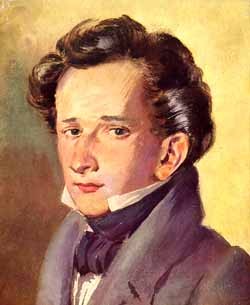 Negli scritti di Nietzsche, è stato detto, si può trovare tutto e il contrario di tutto. Questa pretesa contraddizione interna del grande pensatore ha fornito materiale in quantità per molte opere — talvolta critiche talvolta denigratorie — che hanno accompagnato negli anni la fortuna del filosofo senza, peraltro, mai scalfirne il nòcciolo.
Negli scritti di Nietzsche, è stato detto, si può trovare tutto e il contrario di tutto. Questa pretesa contraddizione interna del grande pensatore ha fornito materiale in quantità per molte opere — talvolta critiche talvolta denigratorie — che hanno accompagnato negli anni la fortuna del filosofo senza, peraltro, mai scalfirne il nòcciolo.
In mezzo alla feconda complessità dei temi trattati, emergono però alcuni aspetti interessanti e solitamente poco noti ai più. Vogliamo qui accennarne qualcuno, almeno per suggerire nuove curiosità.
L’UOMO CHE VISSE DIETRO LA SIEPE
… questa siepe, che da tanta parte
dell’ultimo orizzonte il guardo esclude.
(G. Leopardi, L’infinito, 1819)
Il XVIII secolo sta per finire quando, nel 1798, nasce a Recanati Giacomo Taldegardo Francesco Leopardi, figlio del conte Monaldo e della marchesa Adelaide Antici. Autentico bambino prodigio, all’età di undici anni Giacomo si ritrova senza precettore: sa già tutto quello che c’è da sapere, e non c’è nessuno in grado di seguirlo negli studi. Con la beata incoscienza della sua età, il primogenito di casa Leopardi continua da solo. Da solo impara il greco, l’ebraico, il francese, l’inglese e lo spagnolo; padrone, a soli quindici anni, di tante lingue vive e morte, sviluppa a quest’età l’amore per gli studi filologici: le grammatiche e le sintassi non hanno più per lui alcun segreto, ed ora è finalmente libero di cogliere nella loro pienezza i tesori che si celano dietro l’aridità apparente delle forme verbali e delle declinazioni.
Il 1816 segna una svolta di importanza capitale nella vita e nel pensiero di Leopardi: è in quest’anno, infatti, che il giovane scopre le lettere e la poesia, sulle quali riversa la passione finora consacrata all’erudizione e alla disciplina filologica. Dello stesso anno è anche la prima, e non la più grave, delle molte crisi fisiche e nervose che travaglieranno la sua breve vita: con orrore e certo senza rassegnazione, Giacomo intuisce di aver definitivamente minato la sua già gracile costituzione con un’applicazione mentale eccessiva. Ad aggravare la situazione psicologica del giovane sopraggiunge, sul finire dell’anno, il breve soggiorno in casa Leopardi della bella cugina Gertrude Cassi sposata Lazzari: scoppia la prima infatuazione amorosa, tutta platonica e ovviamente unilaterale, di Giacomo, che recita qui per la prima volta il copione dell’amore illuso e deluso — lo ripeterà per tutta la vita.
Il suo stato d’animo non migliora affatto. In una celebre, drammatica lettera all’amico scrittore Pietro Giordani, datata 2 marzo 1818, Leopardi lascia sgorgare senza pudori tutta la sua amarezza profonda e inconsolabile: «[…] in somma io mi sono rovinato con sette anni di studio matto e disperatissimo in quel tempo che mi s’andava formando e mi si doveva assodare la complessione. E mi sono rovinato infelicemente e senza rimedio per tutta la vita, e rendutomi l’aspetto miserabile, e dispregevolissima tutta quella gran parte dell’uomo, che è la sola a cui guardino i più; e coi più bisogna conversare in questo mondo». Nel settembre dello stesso anno il Giordani, allarmato dalle parole del giovane, lo raggiunge a Recanati per condurlo con sé a Macerata: un viaggio di ben pochi chilometri — il primo in assoluto di Giacomo, allora ventenne. L’impatto con una dimensione estranea a quella del sonnolento “borgo natio” e la consapevolezza di un mondo vasto e sconosciuto destinato a restare fuori dalla sua portata non fanno che aumentare l’inquietudine di Leopardi, che si sente (e sa di essere davvero) profondamente diverso dagli altri, e anela alla gloria.
Nella primavera del 1819 la sua già malferma salute va peggiorando: un esaurimento fisico generale lo prostra, e si manifestano i primi disturbi agli occhi che gli impediscono di leggere per quasi un anno e che, d’ora in poi, lo accompagneranno per tutta la vita. Questo episodio rientra a pieno titolo fra i motivi scatenanti di quel pessimismo assoluto che diverrà cifra e referente del pensiero leopardiano (1).
Corollario inevitabile di questo crollo di ogni illusione è la perdita della fede religiosa; per compensare la quale il Leopardi si getta nell’elaborazione di un suo sistema filosofico — una sorta di materialismo pessimistico radicale sull’onda, paradossalmente, delle suggestioni illuministiche. Se infatti l’illuminismo tracciava il disegno grandioso di un progresso inarrestabile volto a condurre l’umanità intera verso luminosi e necessari destini, per il Leopardi le istanze deterministiche e la constatazione di uno “stato di natura” suggeriscono piuttosto l’idea di un decadimento dell’uomo dalle altezze dell’età antica alle bassure di quella moderna; e la civiltà, lungi dal rappresentare il punto d’arrivo dell’evoluzione umana, si configura invece come l’allontanamento dell’uomo dalla beata condizione naturale, unica e sola in grado di garantire la felicità — cioè l’assenza o la cessazione del dolore (secondo la scuola stoica prediletta dal poeta-filosofo). Il grande passo è compiuto: da qui in avanti il Leopardi alternerà meditazioni filosofiche a composizioni poetiche, per approdare, dopo un silenzio durato cinque anni (dal 1823 al 1828), alla sublime fusione di sostanza filosofica e forma poetica. Sempre più minato nel fisico, trascinerà un’esistenza sofferente, alleviata soltanto dalle cure assidue e affettuose di pochi amici, fino alla morte, sopravvenuta il 14 giugno 1837 a Napoli, in casa dell’amico Antonio Ranieri.
IL POETA E IL FILOSOFO: AFFINITÀ ELETTIVE
È un destino singolare, come si vede, quello che accomuna Giacomo Leopardi e Friedrich Nietzsche: entrambi sono stati mutilati dalla critica, contemporanea e successiva, in gran parte della loro opera — si sa che il Leopardi è noto, apprezzato e studiato come poeta, ma per lo più ignorato come filosofo, mentre Nietzsche è giudicato a buon diritto un gigante del pensiero ma poco più che un semplice dilettante nel campo delle arti. Eppure, come pochi ormai si azzardano a negare, la verità è molto diversa.
Ma le somiglianze non finiscono qui. Sia l’italiano inquieto che il riservato tedesco iniziano il loro percorso intellettuale sui testi di filologia, anche se per motivi dìversi: il piccolo Giacomo perché la pur nutrita biblioteca paterna non era in grado di offrire più niente a un bambino così sorprendentemente dotato; il giovane Federico perché la formazione ricevuta nel prestigioso istituto di Pforta gli aveva rivelato le immense possibilità speculative legate allo studio del mondo classico e delle sue lingue. Inoltre, entrambi furono costretti a viaggiare molto, ed entrambi per questioni di sopravvivenza, soggiornando addirittura negli stessi luoghi; entrambi furono di salute assai cagionevole, soffrendo persino degli stessi disturbi; entrambi trovarono l’ultimo conforto nella vicinanza di amici fedeli e disinteressati; e, per finire, il pensiero di entrambi è stato spesso snaturato e stravolto così da renderli invisi non soltanto a generazioni di studenti, ma anche a molti seri studiosi irrimediabilmente viziati nell’interpretazione dei loro testi.
La complementarità dei loro destini li rende simili al di là delle differenze oggettive, portandoli verso un unico sentire e un’identica visione della vita, tanto che sarà proprio Leopardi ad anticipare alcune delle più brillanti e rivoluzionarie intuizioni di Nietzsche.
Il pensatore di Röcken conosceva, almeno in parte, il Leopardi: sappiamo che nella biblioteca di Nietzsche figuravano due traduzioni tedesche di Leopardi, ad opera dello Hamerling e dello Heyse; sicuramente vi erano compresi i Canti, che il poeta italiano scrisse a partire dal 1818, lo Zibaldone e molto probabilmente le Operette morali. Ed è lo stesso Nietzsche a menzionare il Leopardi, anche se di passata e in modo non proprio lusinghiero: «Gli infelici raffinati, come Leopardi, che dalla loro sofferenza traggono orgogliosamente vendetta su tutta l’esistenza, non si accorgono come il divino mezzano dell’esistenza rida di loro: proprio così essi ora berranno di nuovo dalla sua coppa; infatti la loro vendetta, il loro orgoglio, la loro inclinazione a pensare tutto quanto soffrono, la loro arte nel dirlo: tutto questo non è di nuovo — dolce miele?» (2).
Alla luce di un’attenta lettura del poeta italiano e del filosofo tedesco, è innegabile che le influenze del primo sul secondo esistano, e siano ben documentabili. Confrontiamo, ad esempio, Il sabato del villaggio e La sera del dì di festa (composte entrambe nel settembre 1829) con un frammento di Nietzsche. Il Leopardi scrive:
«[…] intanto riede alla sua parca mensa,
fischiando, il zappatore,
e seco pensa al dì del suo riposo.
Poi, quando intorno è spenta ogni altra face,
e tutto l’altro tace,
odi il martel picchiare, odi la sega
del legnaiuol, che veglia
nella chiusa bottega alla lucerna,
e s’affretta, e s’adopra
di fornir l’opra anzi il chiarir dell’alba.
Questo di sette è il più gradito giorno,
pien di speme e di gioia:
diman tristezza e noia
recheran l’ore, ed al travaglio usato
ciascuno in suo pensier farà ritorno» (3).
E ancora:
«[…] Ahi, per la via
odo non lunge il solitario canto
dell’artigian che riede a tarda notte,
dopo i sollazzi, al suo povero ostello;
e fieramente mi si stringe il core,
a pensar come tutto al mondo passa,
e quasi orma non lascia. Ecco è fuggito
il dì festivo, ed al festivo il giorno
volgar succede, e se ne porta il tempo
ogni umano accidente. […]» (4).
Quello che segue, invece, è il testo nietzscheano:
«Il pomeriggio del sabato si deve passare per un villaggio, se si vuol vedere sui volti dei contadini la vera quiete del dì di festa: allora essi hanno ancora indelibata davanti a sé la giornata di riposo e si industriano a far ordine e pulizia in suo onore con una specie di piacere anticipato, quale non sarà raggiunta dal piacere stesso. La domenica è già quasi lunedì» (5).
Oppure si paragonino questi due brani:
«Ogni grande amore porta con sé il crudele pensiero di uccidere l’oggetto dell’amore, perché sia sottratto una volta per tutte al sacrilego giuoco del mutamento: giacché di fronte al mutamento l’amore inorridisce più che di fronte alla distruzione»;
«Il veder morire una persona amata, è molto meno lacerante che il vederla deperire e trasformarsi nel corpo e nell’animo da malattia (o anche da altra cagione)».
Il primo è di Nietzsche (6), mentre il secondo è di Leopardi (7).
Con un minimo di attenzione, è facilissimo trovare, sparsi qua e là nello Zibaldone senza un ordine fisso, ma sull’onda di meditazioni e concatenamenti apparentemente confusi che fanno delle elaborazioni leopardiane un autentico “pensiero in movimento” destinato ad arrestarsi soltanto con la morte, intuizioni e abbozzi di teorie poi ripresi e sviluppati compiutamente da Nietzsche nell’arco di pochi decenni, e che nella prosa densa del Leopardi spiccano in tutta la loro grandezza.
Così alcuni notevoli passi che anticipano la Genealogia della morale sono del 4-5 settembre 1821: «La legge naturale varia secondo le nature. Un cavallo che non è carnivoro giudicherà forse ingiusto un lupo che assalga e uccida una pecora, l’odierà come sanguinario, e proverà un senso di ribrezzo e d’indignazione abbattendosi a vedere qualche sua carnificina. Non così un lione. Il bene e il male morale non ha dunque nulla di assoluto. Non v’è altra azione malvagia, se non quelle che ripugnano alle inclinazioni di ciascun genere di esseri operanti: né sono malvage quelle che nocciono ad altri esseri, mentre non ripugnino alla natura di chi le eseguisce» (8); «Si suol dire che tutte le cose, tutte le verità hanno due facce, diverse o contrarie, anzi infinite. Non c’è verità che prendendo l’argomento più o meno da lungi, e camminando per una strada più o meno nuova, non si possa dimostrar falsa con evidenza ec. ec. ec. Quest’osservazione (che puoi molto specificare ed estendere) non prova ella che nessuna verità né falsità è assoluta, neppure in ordine al nostro modo di vedere e di ragionare, neppur dentro i limiti della concezione e ragione umana?» (9); «Da ciò che si è detto della legge pretesa naturale, risulta che ne vi è bene né male assoluto di azioni; ci queste non sono buone o cattive fuorché secondo le convenienze, le quali son stabilite, cioè determinate dal solo Dio ossia, come diciamo, dalla natura; che variando le circostanze, e quindi le convenienze, varia ancora la morale, né v’è legge alcuna scolpita primordialmente ne’ nostri cuori; che molto meno v’è una morale eterna e preesistente alla natura delle cose, ma ch’ella dipende e consiste del tutto nella volontà e nell’arbitrio di Dio padrone sì di stabilire quelle determinate convenienze che voleva […]. Da tutto ciò resta spiegata la differenza fra la legge che corse prima di Mosè, quella di Mosè, e quella di Cristo. […] L’antica legge Ebraica permetteva il concubinato, fuorché colle donne forestiere ec. L’odio del nemico costituiva lo spirito delle antiche nazioni. Ecco le leggi di Mosè tutte patriottiche, ecco santificate le invasioni, le guerre contro i forestieri, proibite le nozze con loro, permesso anche l’odio del nemico privato. E Gesù comandando l’amor del nemico, dice formalmente che dà un precetto nuovo. Come ciò, se la morale è eterna e necessaria? Come è male oggi, quel ch’era forse bene ieri? Ma la morale non è altro che convenienza, e i tempi avevano portato nuove convenienze. Questo discorso potrebbe infinitamente estendersi generalizzando sullo stato del mondo antico e moderno, e sulla differente morale adattata a questi diversi stati. L’uomo isolato non aveva bisogno di morale, e nessuna ne ebbe infatti, essendo un sogno la legge naturale. Egli ebbe solo dei doveri d’inclinazione verso se stesso, i soli doveri utili e convenienti nel suo stato. Stretta la società, la morale fu convenienza, e Dio la diede all’uomo appoco appoco, o piuttosto ora una ora un’altra, secondo i successivi stati della società: e ciascuna di queste morali era ugualmente perfetta, perché conveniente; e perfetto è l’uomo isolato, senza morale» (10).
Un rilievo del 1823 sembra attagliarsi perfettamente a certe considerazioni contenute nell’Anticristo: «Persone imperfette, difettose, mostruose di corpo, tra quelle che non arrivano a nascere e […] tra quelle che son tali dalla nascita […]; quelle che così nate vivono e […] quelle finalmente che tali son divenute dopo la nascita […]; sommando dico e raccogliendo tutti questi individui insieme, si vedrà a colpo d’occhio e senza molta riflessione che il loro numero nel solo genere umano, anzi nella sola parte civile di esso, avanza di gran lunga non solamente quello che trovasi in qualsivoglia altro intero genere d’animali, non solamente eziandio quello che veggiamo in ciascheduna specie degli animali domestici, che pur sono corrotti e mutati dalla naturale condizione e vita, e da noi in mille guise travagliati e malmenati; ma tutto insieme il numero degl’individui difettosi e mostruosi che noi veggiamo in tutte le specie di animali che ci si offrono giornalmente alla vista, prese e considerate insieme. La qual verità è così manifesta, che niuno, io credo, purché vi pensi un solo momento e raccolga le sue reminiscenze, la potrà contrastare. Simile differenza si troverà in questo particolare fra le nazioni civile e le selvagge, e proporzionatamente fra le più civili e le meno, secondo un’esatta scala» (11). Di questa lunga citazione merita, a nostro avviso, sottolineare anche l’accenno agli animali, che è una costante del Leopardi: la sua attenzione nei confronti della natura e degli esseri viventi è continua e delicata, comprendendo ogni forma di vita nel mistero del dolore universale e del pessimismo cosmico. Anche questo è un tratto (e non dei minori) che lo accomuna a Nietzsche.
Sempre nell’Anticristo, troviamo invece una frase illuminante del filosofo tedesco: «Se si avesse nel petto una qualche misura, anche esigua, di religiosità, un Dio che cura al momento giusto il raffreddore o che ci fa salire in carrozza nel preciso istante in cui si scatena un acquazzone dovrebbe essere per noi tanto assurdo, che occorrerebbe eliminarlo anche nel caso in cui esistesse. Un Dio come domestico, come portalettere, come venditore d’almanacchi — una sola parola, in fondo, per indicare la specie più stupida tra tutte le circostanze fortuite…» (12). Il riferimento alla celebre operetta morale che il Leopardi scrisse nel 1832, e intitolata appunto Dialogo di un venditore di almanacchi e di un passeggere, ci sembra assolutamente fuor di dubbio: nel Dialogo, il poeta immagina l’incontro fra un “passeggere” e un venditore di calendari che propone al passante l’acquisto di un calendario per l’anno nuovo. Il passante si informa se l’anno nuovo sarà o no migliore del precedente, e il venditore risponde di sì; ma il passante incalza, e vuole sapere a quale degli ultimi vent’anni potrebbe essere paragonato l’anno nuovo in quanto a bontà; il venditore annaspa, travolto dalla stupidità dei luoghi comuni che il passante gli sciorina uno dietro l’altro, e il dialogo si conclude col timido “speriamo…” del venditore che non può fare altro che rifilare al passante un calendario qualsiasi, nell’illusione che il futuro sarà comunque migliore del passato. Eccolo qua, il Dio schernito da Nietzsche: un Dio buono per tutte le stagioni, che porterà il sole al villeggiante e la pioggia al contadino, la pace a chi combatte e la guerra al mercante d’armi — proprio un Dio che, se davvero esistesse, andrebbe eliminato.
Non sono — ovviamente — tutti qui i paralleli fra il poeta-filosofo e il filosofo-poeta. L’argomento meriterebbe ben più di qualche cenno frettoloso, ma sappiamo che l’insofferenza di troppi per la poesia leopardiana non è certo né il minore né l’ultimo dei guasti fatti dalla scuola italiana. Per chiudere in bellezza, scegliamo l’insegnamento supremo di Zarathustra il Distruttore: «Uomini superiori, imparatemi - a ridere!» (13), adombrato in uno degli ultimi appunti dello Zibaldone: «Terribile e awful è la potenza del riso; chi ha il coraggio di ridere, è padrone degli altri, come chi ha il coraggio di morire» (14).
(testo apparso originariamente sulla rivista “Origini”,
numero monografico su Friedrich Nietzsche, 1994)
NOTE
(1) Lui stesso descriverà così l’avvenuto mutamento, in un’annotazione datata 1 luglio 1820: «Sono stato sempre sventurato, ma le mie sventure d’allora erano piene di vita, e mi disperavano perché mi pareva […] che m’impedissero la felicità, della quale gli altri credea che godessero. […] La mutazione totale in me […] seguì […] nel 1819 dove privato dell’uso della vista, e della continua distrazione della lettura, cominciai […] a divenir filosofo di professione (di poeta ch’io era), a sentire l’infelicità certa del mondo» (Giacomo Leopardi, Zibaldone, Oscar Mondadori, Milano 1972, vol. 1, p. 118).
(2) Friedrich Nietzsche, Umano, troppo umano (e scelta di frammenti postumi), Oscar Mondadori, Milano 1976, vol. II, fr. 38 [2], p. 273.
(3) G. Leopardi, Il sabato del villaggio, vv. 28-42.
(4) Idem, La sera del dì di festa, vv. 24-33.
(5) F. Nietzsche, Umano…, cit., fr. 45 [3], p. 286.
(6) Ivi, fr. 280. p. 95.
(7) G. Leopardi, Zibaldone, cit., p. 290 (8 gennaio 1821).
(8) Idem, Zibaldone, cit., vol. II, p. 582 (4 settembre 1821).
(9) Ivi, p. 585 (5 settembre 1821).
(10) Ivi, pp. 587-589 (5 settembre 1821).
(11) Ivi, p. 844 (28 luglio 1823).
(12) F. Nietzsche, L’Anticristo. Maledizione del cristianesimo, Adelphi, Milano 1977, par. 52, p. 75.
(13) F. Nietzsche, Così parlò Zarathustra, Adelphi, Milano 1973, p. 359 (“Dell’uomo superiore” - 20, 25).
(14) G. Leopardi, Zibaldone, cit., vol. II, p. 1160 (23 settembre 1828).
(© Alessandra Colla, Prima che Nietzsche venisse, 1994, in “Origini - Nietzsche”, 2006)
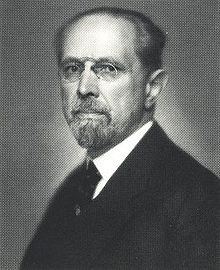 La noticia del apresurado y dichoso financiero yanqui, nos trae al recuerdo la figura del gran economista alemán profesor Werner Sombart, que ejerció docencia, justamente sonada, como profesor de Economía Política, en la Universidad de Berlín, y cuya obra es una verdadera pena que aun no haya sido traducida —que sepamos— al castellano.
La noticia del apresurado y dichoso financiero yanqui, nos trae al recuerdo la figura del gran economista alemán profesor Werner Sombart, que ejerció docencia, justamente sonada, como profesor de Economía Política, en la Universidad de Berlín, y cuya obra es una verdadera pena que aun no haya sido traducida —que sepamos— al castellano.


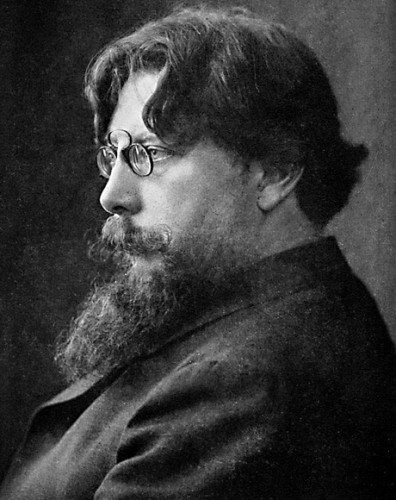 Das Freidenkertum entstand im 17. Jahrhundert in England und gelangte im Laufe des 18. Jahrhunderts auf den europäischen Kontinent, v. a. nach Frankreich. Das ursprüngliche Ziel der Bewegung war die Religionsfreiheit. Das "freie Denken" sollte die Evidenz aller Gegenstände aus der Sache ableiten, nicht aus der Autorität. Erst im "eigentümlichen Freiheitsraum des 19. Jahrhunderts" (Friedrich Heer) vollzog sich innerhalb der Freidenkerbewegung ein Wandel: man organisierte sich, versuchte die ursprünglich elitäre Idee zu popularisieren und so politischen Einfluß auszuüben - man wollte das Denken allgemein von religiösen Vorstellungen befreien. Ein Resultat war, daß die Bezeichnung Freidenker, jetzt zu Recht, synonym für Atheisten gebraucht werden konnte. 1881 wurde der Deutsche Freidenker-Bund (DFB) durch Ludwig Büchner gegründet. 1905 bzw. 1908 folgten sozialdemokratische bzw. proletarische Abspaltungen, die sich 1927 vereinigten. Ihren Höhepunkt hatte die Bewegung am Anfang der 30er Jahre. Am Zweiten Weltkrieg zerbrach der Fortschrittsglaube, mit dem Einflußverlust (und der blutigen Unterdrückung) der Kirchen kam der Hauptfeind abhanden und die Naturwissenschaft stieß v. a. in der Atom- und Astrophysik an Grenzen, die einen weltanschaulichen Materialismus unglaubwürdig machen.
Das Freidenkertum entstand im 17. Jahrhundert in England und gelangte im Laufe des 18. Jahrhunderts auf den europäischen Kontinent, v. a. nach Frankreich. Das ursprüngliche Ziel der Bewegung war die Religionsfreiheit. Das "freie Denken" sollte die Evidenz aller Gegenstände aus der Sache ableiten, nicht aus der Autorität. Erst im "eigentümlichen Freiheitsraum des 19. Jahrhunderts" (Friedrich Heer) vollzog sich innerhalb der Freidenkerbewegung ein Wandel: man organisierte sich, versuchte die ursprünglich elitäre Idee zu popularisieren und so politischen Einfluß auszuüben - man wollte das Denken allgemein von religiösen Vorstellungen befreien. Ein Resultat war, daß die Bezeichnung Freidenker, jetzt zu Recht, synonym für Atheisten gebraucht werden konnte. 1881 wurde der Deutsche Freidenker-Bund (DFB) durch Ludwig Büchner gegründet. 1905 bzw. 1908 folgten sozialdemokratische bzw. proletarische Abspaltungen, die sich 1927 vereinigten. Ihren Höhepunkt hatte die Bewegung am Anfang der 30er Jahre. Am Zweiten Weltkrieg zerbrach der Fortschrittsglaube, mit dem Einflußverlust (und der blutigen Unterdrückung) der Kirchen kam der Hauptfeind abhanden und die Naturwissenschaft stieß v. a. in der Atom- und Astrophysik an Grenzen, die einen weltanschaulichen Materialismus unglaubwürdig machen.
 del.icio.us
del.icio.us
 Digg
Digg
 Billion (!) Euro mehr herausgenommen als in diese einbezahlt haben, dann klickt man
Billion (!) Euro mehr herausgenommen als in diese einbezahlt haben, dann klickt man 










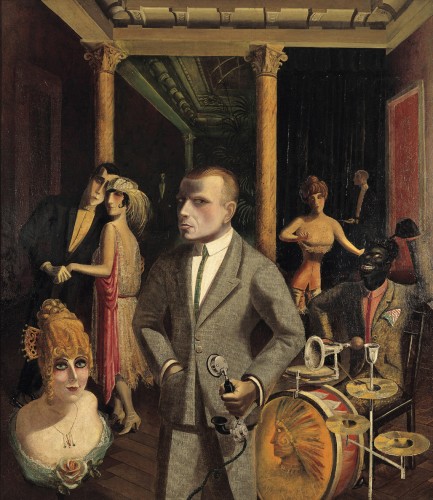
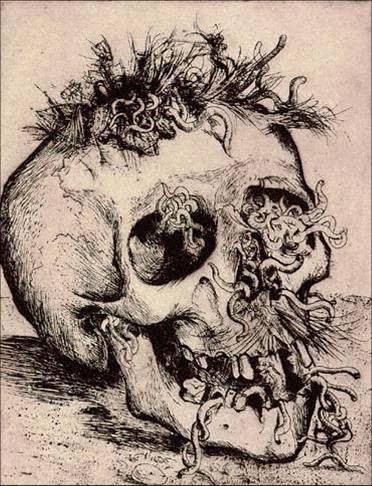 En 1914, Dix s'engageait en tant que volontaire dans l'armée. L'expérience devait, comme toute sa génération, profondément le marquer. S'il est une habitude de dépeindre Dix comme un pacifiste, son journal de guerre et sa correspondance montrent un caractère sensiblement différent. La guerre fut perçue par Dix, comme par beaucoup d'autres jeunes gens en Allemagne, comme l'offre d'un nouveau départ, d'une coupure radicale avec ce qui était ressenti comme la pesanteur de l'époque wilhelminienne, sa mesquinerie, son étroitesse, sa provincialité qu'une certaine littérature a si bien décrites. Elle annonçait la fin inévitable d'une époque. Les premiers combats, l'ampleur des destructions devaient, bien sûr, limiter l'enthousiasme des départs, mais le gigantisme des cataclysmes que réservait la guerre, n'en présentait pas moins quelque chose de fascinant. Le pacifiste Dix se rapproche par bien des aspects du Jünger des journaux de guerre. L'épreuve de la guerre pour Ernst Jünger trempe de nouveaux types d'hommes dans le monde d'orages et d'acier qu'offrent les combats dans les tranchées.
En 1914, Dix s'engageait en tant que volontaire dans l'armée. L'expérience devait, comme toute sa génération, profondément le marquer. S'il est une habitude de dépeindre Dix comme un pacifiste, son journal de guerre et sa correspondance montrent un caractère sensiblement différent. La guerre fut perçue par Dix, comme par beaucoup d'autres jeunes gens en Allemagne, comme l'offre d'un nouveau départ, d'une coupure radicale avec ce qui était ressenti comme la pesanteur de l'époque wilhelminienne, sa mesquinerie, son étroitesse, sa provincialité qu'une certaine littérature a si bien décrites. Elle annonçait la fin inévitable d'une époque. Les premiers combats, l'ampleur des destructions devaient, bien sûr, limiter l'enthousiasme des départs, mais le gigantisme des cataclysmes que réservait la guerre, n'en présentait pas moins quelque chose de fascinant. Le pacifiste Dix se rapproche par bien des aspects du Jünger des journaux de guerre. L'épreuve de la guerre pour Ernst Jünger trempe de nouveaux types d'hommes dans le monde d'orages et d'acier qu'offrent les combats dans les tranchées. 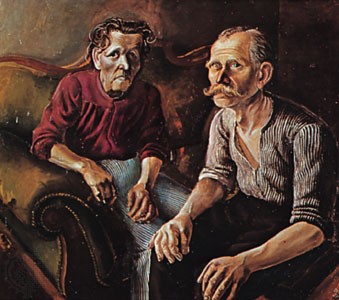 Une des peintures les plus justement célèbres de Dix, la Rue de Prague
Une des peintures les plus justement célèbres de Dix, la Rue de Prague
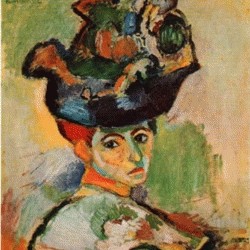
 En 1911, par scission du N.K.V.M. est fondé le mouvement Le Cavalier Bleu (Der Blaue Reiter) avec August Macke, Franz Marc, Paul Klee (le moins doué) et Vassily Kandinsky. L’idée du nom vient du Cavalier Bleu de Kandinsky (1903) tout autant que de la prédilection de Franz Marc pour les dessins et peintures de chevaux (Cheval bleu, 1911). Kandinsky déclare : « Le cheval porte son cavalier avec vigueur et rapidité, mais c’est le cavalier qui conduit le cheval. Le talent conduit l’artiste à de hauts sommets, mais c’est l’artiste qui maîtrise son talent ». August Macke, qui fut une des figures du N.K.V.M. illustre superbement la vitalité du Cavalier Bleu à ses débuts (Paysage avec trois jeunes filles, 1911). Il meurt sur le front de Champagne à 27 ans. Franz Marc est un artiste majeur lui aussi, c’est sans doute un des plus doués, des plus nets et affirmés du groupe (Renard d’un bleu noir, 1911). Il meurt en 1916 près de Verdun.
En 1911, par scission du N.K.V.M. est fondé le mouvement Le Cavalier Bleu (Der Blaue Reiter) avec August Macke, Franz Marc, Paul Klee (le moins doué) et Vassily Kandinsky. L’idée du nom vient du Cavalier Bleu de Kandinsky (1903) tout autant que de la prédilection de Franz Marc pour les dessins et peintures de chevaux (Cheval bleu, 1911). Kandinsky déclare : « Le cheval porte son cavalier avec vigueur et rapidité, mais c’est le cavalier qui conduit le cheval. Le talent conduit l’artiste à de hauts sommets, mais c’est l’artiste qui maîtrise son talent ». August Macke, qui fut une des figures du N.K.V.M. illustre superbement la vitalité du Cavalier Bleu à ses débuts (Paysage avec trois jeunes filles, 1911). Il meurt sur le front de Champagne à 27 ans. Franz Marc est un artiste majeur lui aussi, c’est sans doute un des plus doués, des plus nets et affirmés du groupe (Renard d’un bleu noir, 1911). Il meurt en 1916 près de Verdun.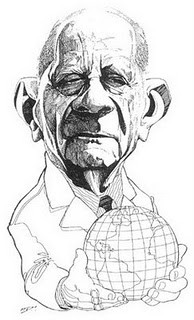 Aucun bricolage néo-kantien ne pourra longtemps masquer le nihilisme démocratique et la vacuité moderne – d’autant moins d’ailleurs que cet excellent lecteur de Kant que fut Jacobi diagnostiqua parmi les premiers la maladie nihiliste que les trois Critiques incubèrent fort peu de temps avant qu’elle ne se déclare. L’Europe, c’est-à-dire très exactement la chrétienté selon Novalis, ne pourra réagir qu’en opposant son antidote souverain : le catholicisme. On peut prendre la question dans tous les sens, ce n’est qu’en réactivant l’interrogation théologico-politique, comme l’ont compris Joseph de Maistre, Donoso Cortès, Carl Schmitt, mais aussi Leo Strauss et Jacob Taubes d’un point de vue juif, donc, en dernière analyse, chrétien, que l’on pourra faire rendre gorge au néant. L’adhésion très temporaire de Carl Schmitt au NSDAP (après d’ailleurs qu’il a mis tout Weimar en garde, dès 1932, sur le danger national-socialiste et l’urgence à interdire, par l’article 48 de la Constitution, les partis communiste et nazi) ne s’explique là encore que par la mystique au sens de Péguy – et non la politique: le catholique conséquent croyant en l’existence de l’univers invisible et donc des mauvais anges peut être abusé par les ruses et les séductions de l’Ennemi (au sens schmittien, d’une certaine façon, nous y reviendrons) jusqu’à prendre des vessies pour des lanternes et le point culminant du nihilisme actif (et non passif, celui-ci relevant de la juridiction démocratique) pour le paroxysme de la vérité. À la lettre oxymorique, il côtoie toujours les cimes des abîmes, comme un abbé Donissan ou un curé d’Ambricourt et à la différence de n’importe quel démocrate-chrétien. Les enfileurs de perles et les analystes du rien, hommes du ni oui ni non, font aujourd’hui écran au théologien politique, homme des affirmations absolues et des négations souveraines fidèle à l’Évangile («Que votre oui soit oui, que votre non soit non», Mt 5, 37) alors que ce dernier est évidemment requis par la tiédeur infernale. Le libéralisme, hostile à toute forme de vision, ne voit bien entendu se profiler aucune eschatologie à l’horizon de sa myopie : il rassemble l’alpha et l’oméga de l’Histoire – formule inadéquate quoique révélatrice de la parodie – dans l’alternance, le marché, l’hédonisme, le sentimentalisme et l’humanitarisme (ce que Schmitt appellera, non sans mépris, «la décision morale et politique dans l’ici-bas paradisiaque d’une vie immédiate, naturelle, et d’une «corporéité» sans problèmes» ou «les faits sociaux purs de toute politique»). Qui décidera de l’état d’exception en cas de guerre civile ? Le souverain, soit, personne (l’anti-personne démoniaque – en ceci, le désespoir demeure en politique une sottise absolue, puisque aussi bien le diable porte pierre).
Aucun bricolage néo-kantien ne pourra longtemps masquer le nihilisme démocratique et la vacuité moderne – d’autant moins d’ailleurs que cet excellent lecteur de Kant que fut Jacobi diagnostiqua parmi les premiers la maladie nihiliste que les trois Critiques incubèrent fort peu de temps avant qu’elle ne se déclare. L’Europe, c’est-à-dire très exactement la chrétienté selon Novalis, ne pourra réagir qu’en opposant son antidote souverain : le catholicisme. On peut prendre la question dans tous les sens, ce n’est qu’en réactivant l’interrogation théologico-politique, comme l’ont compris Joseph de Maistre, Donoso Cortès, Carl Schmitt, mais aussi Leo Strauss et Jacob Taubes d’un point de vue juif, donc, en dernière analyse, chrétien, que l’on pourra faire rendre gorge au néant. L’adhésion très temporaire de Carl Schmitt au NSDAP (après d’ailleurs qu’il a mis tout Weimar en garde, dès 1932, sur le danger national-socialiste et l’urgence à interdire, par l’article 48 de la Constitution, les partis communiste et nazi) ne s’explique là encore que par la mystique au sens de Péguy – et non la politique: le catholique conséquent croyant en l’existence de l’univers invisible et donc des mauvais anges peut être abusé par les ruses et les séductions de l’Ennemi (au sens schmittien, d’une certaine façon, nous y reviendrons) jusqu’à prendre des vessies pour des lanternes et le point culminant du nihilisme actif (et non passif, celui-ci relevant de la juridiction démocratique) pour le paroxysme de la vérité. À la lettre oxymorique, il côtoie toujours les cimes des abîmes, comme un abbé Donissan ou un curé d’Ambricourt et à la différence de n’importe quel démocrate-chrétien. Les enfileurs de perles et les analystes du rien, hommes du ni oui ni non, font aujourd’hui écran au théologien politique, homme des affirmations absolues et des négations souveraines fidèle à l’Évangile («Que votre oui soit oui, que votre non soit non», Mt 5, 37) alors que ce dernier est évidemment requis par la tiédeur infernale. Le libéralisme, hostile à toute forme de vision, ne voit bien entendu se profiler aucune eschatologie à l’horizon de sa myopie : il rassemble l’alpha et l’oméga de l’Histoire – formule inadéquate quoique révélatrice de la parodie – dans l’alternance, le marché, l’hédonisme, le sentimentalisme et l’humanitarisme (ce que Schmitt appellera, non sans mépris, «la décision morale et politique dans l’ici-bas paradisiaque d’une vie immédiate, naturelle, et d’une «corporéité» sans problèmes» ou «les faits sociaux purs de toute politique»). Qui décidera de l’état d’exception en cas de guerre civile ? Le souverain, soit, personne (l’anti-personne démoniaque – en ceci, le désespoir demeure en politique une sottise absolue, puisque aussi bien le diable porte pierre).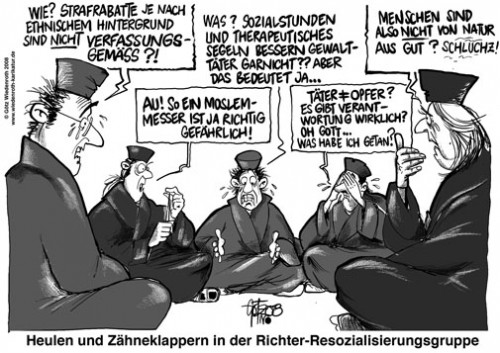
 Die ideologische Konvergenz der sich über die „Mitte“-Verortung für das Volk setzenden Volks-Parteien belegt, daß sich das „eherne Gesetz der Oligarchie“ (Robert Michels) durchgesetzt hat. Es hat sich eine politische Klasse mit einer einheitlichen Weltsicht gebildet, die sich gegenüber maßgeblichen Forderungen aus dem Wahlvolk, das die Oligarchie über eine „Konsensdemokratie“ zu vertreten beansprucht, immunisiert. Die Tendenz zur Oligarchie bestätigt an sich die rechte Weltsicht gegenüber linken „demokratischen“ Wunschvorstellungen, jedoch ist es zum Zwecke der Wahrung des demokratischen Charakters der parlamentarischen Demokratie erforderlich, diesem „ehernen Gesetz“ entgegenzuwirken. Die Linke hat kein Interesse, da sie ja die Ideologie der oligarchischen Mitte bestimmt.
Die ideologische Konvergenz der sich über die „Mitte“-Verortung für das Volk setzenden Volks-Parteien belegt, daß sich das „eherne Gesetz der Oligarchie“ (Robert Michels) durchgesetzt hat. Es hat sich eine politische Klasse mit einer einheitlichen Weltsicht gebildet, die sich gegenüber maßgeblichen Forderungen aus dem Wahlvolk, das die Oligarchie über eine „Konsensdemokratie“ zu vertreten beansprucht, immunisiert. Die Tendenz zur Oligarchie bestätigt an sich die rechte Weltsicht gegenüber linken „demokratischen“ Wunschvorstellungen, jedoch ist es zum Zwecke der Wahrung des demokratischen Charakters der parlamentarischen Demokratie erforderlich, diesem „ehernen Gesetz“ entgegenzuwirken. Die Linke hat kein Interesse, da sie ja die Ideologie der oligarchischen Mitte bestimmt.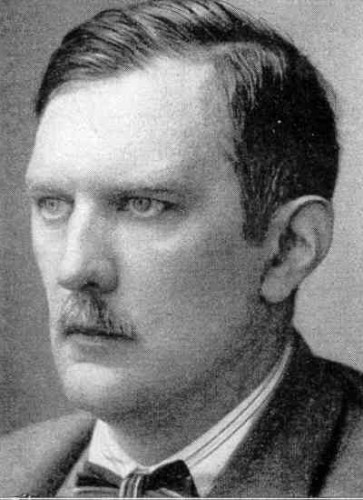 Arthur Moeller van den Bruck fu uno dei più alti risultati ideologici conseguiti dallo sforzo europeo di uscire dalle contraddizioni e dai disastri della modernità: fu uno dei primi a politicizzare il disagio della nostra civiltà di fronte all’affermazione mondiale del liberalismo e all’ascesa della nuova anti-Europa, come fin da subito fu giudicata l’America dai nostri migliori osservatori. Di qui una netta separazione del concetto di Occidente da quello di Europa. Il rifiuto dell’Occidente capitalista e della sua violenta deriva antipopolare doveva condurre in linea retta ad una rivoluzione dei popoli europei, ad un loro ringiovanimento, al loro rilancio come vere democrazie organiche di popolo. Come tanti altri ingegni dei primi decenni del
Arthur Moeller van den Bruck fu uno dei più alti risultati ideologici conseguiti dallo sforzo europeo di uscire dalle contraddizioni e dai disastri della modernità: fu uno dei primi a politicizzare il disagio della nostra civiltà di fronte all’affermazione mondiale del liberalismo e all’ascesa della nuova anti-Europa, come fin da subito fu giudicata l’America dai nostri migliori osservatori. Di qui una netta separazione del concetto di Occidente da quello di Europa. Il rifiuto dell’Occidente capitalista e della sua violenta deriva antipopolare doveva condurre in linea retta ad una rivoluzione dei popoli europei, ad un loro ringiovanimento, al loro rilancio come vere democrazie organiche di popolo. Come tanti altri ingegni dei primi decenni del 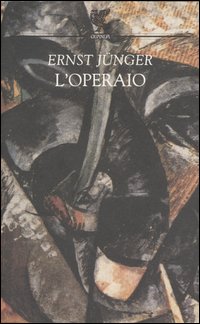





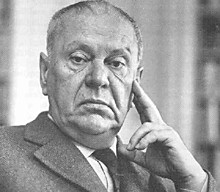
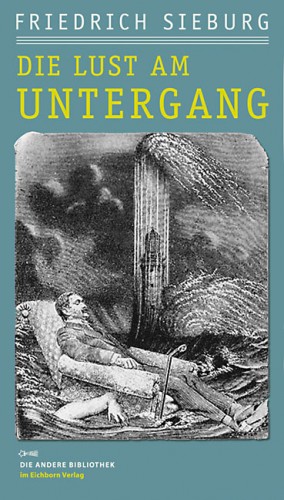 Man mag nicht glauben, daß 56 Jahre seit der Erstveröffentlichung des vorliegenden Bandes vergangen sind! Die Fragen, denen Sieburg sich hier in neun Kapiteln (etwa »Die Kunst, Deutscher zu sein«, »Vom Menschen zum Endverbraucher«) widmet, lesen sich nicht als Rückblick auf Gefechte von gestern. Sie sind noch ebensogut unsere Themen: Identitätssuche, Vergangenheitsbewältigung, Konsumwahn, die Grenze zwischen Privatheit und Öffentlichkeit. Auch wo seine Angelegenheiten einmal der unmittelbaren Aktualität entbehren – etwa in seiner bemerkenswerten Replik auf Curzio Malaparte (d.i. K.E. Suckert) oder in seinen Einlassungen zum Verlust der Ostgebiete – nickt man staunend. Ohne Twitter oder Ryan Air gekannt zu haben, spottet Sieburg über »das Management des Vergnügens«, die »Mechanisierung der Freizeit«. Er meinte damit – wie bescheiden aus heutiger Warte! – »Betriebsausflüge an den Comer See« und Klassenfahrten in die Alpen. »Der Vorschlag, die Kinder sollten an der Nidda Blumen suchen, würde heute auf allen Seiten große Heiterkeit hervorrufen.« Für Sieburg waren die Deutschen »ein Volk ohne Mitte«: »Im Deutschen, so glaubte die Welt gestern noch, ist mehr Explosivstoff angehäuft als in jedem anderen Erdenbewohner. Hat sich diese Ansicht geändert, sind beim Anblick des fleißigen und lammfrommen Bundesdeutschen, der sogar den Karneval straff organisiert und wirtschaftsbewußt dem Konsum dienstbar macht, der das Wort Europa dauernd im Mund führt, (…) den kein Aufmarsch mit Fahnen mehr aus seinem Wochenendhaus, seinem Faltboot und Volkswagen herauslocken kann, der nur noch zu den Vertretern versunkener Fürstenhäuser und zu Filmstars aufschaut, der einen harmonischen Bund zwischen Preußentum und Nackenfett eingegangen ist, (…) der vom Golf von Neapel bis zum Nordkap die schnellsten Wagen fährt, sich in Capri bräunen läßt (…), der sich aus Ordnungssinn mit der abstrakten Kunst und dem Nihilismus beschäftigt – sind, so frage ich, beim Anblick dieses Musterknaben, der sich in der Schule der Demokratie zum Primus aufarbeitet, alle Ängste und mißtrauische Befürchtungen verschwunden? Ich antworte, nein.«
Man mag nicht glauben, daß 56 Jahre seit der Erstveröffentlichung des vorliegenden Bandes vergangen sind! Die Fragen, denen Sieburg sich hier in neun Kapiteln (etwa »Die Kunst, Deutscher zu sein«, »Vom Menschen zum Endverbraucher«) widmet, lesen sich nicht als Rückblick auf Gefechte von gestern. Sie sind noch ebensogut unsere Themen: Identitätssuche, Vergangenheitsbewältigung, Konsumwahn, die Grenze zwischen Privatheit und Öffentlichkeit. Auch wo seine Angelegenheiten einmal der unmittelbaren Aktualität entbehren – etwa in seiner bemerkenswerten Replik auf Curzio Malaparte (d.i. K.E. Suckert) oder in seinen Einlassungen zum Verlust der Ostgebiete – nickt man staunend. Ohne Twitter oder Ryan Air gekannt zu haben, spottet Sieburg über »das Management des Vergnügens«, die »Mechanisierung der Freizeit«. Er meinte damit – wie bescheiden aus heutiger Warte! – »Betriebsausflüge an den Comer See« und Klassenfahrten in die Alpen. »Der Vorschlag, die Kinder sollten an der Nidda Blumen suchen, würde heute auf allen Seiten große Heiterkeit hervorrufen.« Für Sieburg waren die Deutschen »ein Volk ohne Mitte«: »Im Deutschen, so glaubte die Welt gestern noch, ist mehr Explosivstoff angehäuft als in jedem anderen Erdenbewohner. Hat sich diese Ansicht geändert, sind beim Anblick des fleißigen und lammfrommen Bundesdeutschen, der sogar den Karneval straff organisiert und wirtschaftsbewußt dem Konsum dienstbar macht, der das Wort Europa dauernd im Mund führt, (…) den kein Aufmarsch mit Fahnen mehr aus seinem Wochenendhaus, seinem Faltboot und Volkswagen herauslocken kann, der nur noch zu den Vertretern versunkener Fürstenhäuser und zu Filmstars aufschaut, der einen harmonischen Bund zwischen Preußentum und Nackenfett eingegangen ist, (…) der vom Golf von Neapel bis zum Nordkap die schnellsten Wagen fährt, sich in Capri bräunen läßt (…), der sich aus Ordnungssinn mit der abstrakten Kunst und dem Nihilismus beschäftigt – sind, so frage ich, beim Anblick dieses Musterknaben, der sich in der Schule der Demokratie zum Primus aufarbeitet, alle Ängste und mißtrauische Befürchtungen verschwunden? Ich antworte, nein.« Müdigkeit und Geschichtslosigkeit zeige, »die mit einer nie dagewesenen Nüchternheit« gepaart sei. »Nur der Deutsche schwärzt seinen Landsmann bei Fremden an, nur der Deutsche verständigt sich lieber mit einem Exoten als mit einem politischen Gegner eigenen Stammes (…), nur der Deutsche verleugnet Flagge, Hymne und Staatsform des Mutterlandes vor Dritten.« Als »dümmstes Schlagwort« seiner Zeit erschien dem Publizisten der schon damals opportune Vorwurf, »restaurative Tendenzen« zu befördern. Alles Große, Geniale, das Heldenhafte ohnehin, dessen die Deutschen einst fähig waren, werde nun verhöhnt und gegeißelt unter dem Vorwand, »daß die alten Zeiten nicht wiederkommen dürfen«. Ja, und wie furchtbar war auch der »deutsche Spießer!« Allerdings, so Sieburg, sei zu befürchten, daß der Spießer in neuem Gewand, nämlich mit »heraushängendem Hemd« nach US-Vorbild wiedergekehrt sei, und daß die »Vorurteilslosigkeit in der Kleidung, im Umgang mit dem anderen Geschlecht und den Nerven der Mitmenschen nicht eine höhere sittliche Freiheit und einen souveränen Geist« mit sich führe.
Müdigkeit und Geschichtslosigkeit zeige, »die mit einer nie dagewesenen Nüchternheit« gepaart sei. »Nur der Deutsche schwärzt seinen Landsmann bei Fremden an, nur der Deutsche verständigt sich lieber mit einem Exoten als mit einem politischen Gegner eigenen Stammes (…), nur der Deutsche verleugnet Flagge, Hymne und Staatsform des Mutterlandes vor Dritten.« Als »dümmstes Schlagwort« seiner Zeit erschien dem Publizisten der schon damals opportune Vorwurf, »restaurative Tendenzen« zu befördern. Alles Große, Geniale, das Heldenhafte ohnehin, dessen die Deutschen einst fähig waren, werde nun verhöhnt und gegeißelt unter dem Vorwand, »daß die alten Zeiten nicht wiederkommen dürfen«. Ja, und wie furchtbar war auch der »deutsche Spießer!« Allerdings, so Sieburg, sei zu befürchten, daß der Spießer in neuem Gewand, nämlich mit »heraushängendem Hemd« nach US-Vorbild wiedergekehrt sei, und daß die »Vorurteilslosigkeit in der Kleidung, im Umgang mit dem anderen Geschlecht und den Nerven der Mitmenschen nicht eine höhere sittliche Freiheit und einen souveränen Geist« mit sich führe.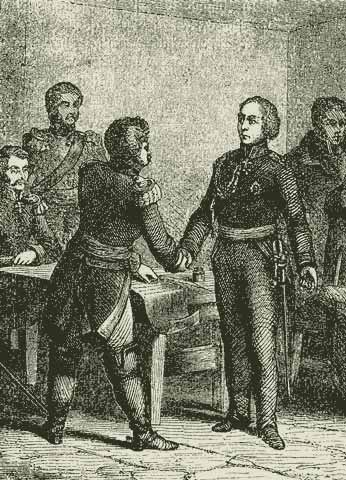 Zahlreiche russische Staatsmänner haben die Auffassung vertreten, gute Beziehungen mit dem deutschen Volk seien das A und O der russischen Europapolitik. Die deutschen Patrioten pflichten dieser Ansicht voll und ganz bei und halten ein deutsch-russisches Bündnis für den Eckstein der deutschen Ostpolitik. Als Vorbild dient ihnen Tauroggen. Am 30. Dezember 1812 unterzeichneten der preußische General York von Wartenberg und der russische General Dibitsch in einer Mühle des litauischen Dorfes Poscherun die Konvention von Tauroggen. Diese sollte das Schicksal Napoleons endgültig besiegeln und seine Niederlage unvermeidlich machen.
Zahlreiche russische Staatsmänner haben die Auffassung vertreten, gute Beziehungen mit dem deutschen Volk seien das A und O der russischen Europapolitik. Die deutschen Patrioten pflichten dieser Ansicht voll und ganz bei und halten ein deutsch-russisches Bündnis für den Eckstein der deutschen Ostpolitik. Als Vorbild dient ihnen Tauroggen. Am 30. Dezember 1812 unterzeichneten der preußische General York von Wartenberg und der russische General Dibitsch in einer Mühle des litauischen Dorfes Poscherun die Konvention von Tauroggen. Diese sollte das Schicksal Napoleons endgültig besiegeln und seine Niederlage unvermeidlich machen. Herr Maschke, hat Gregor Gysi recht, wenn er davon spricht, daß Deutschland einen Angriffskrieg gegen Serbien führt?
Herr Maschke, hat Gregor Gysi recht, wenn er davon spricht, daß Deutschland einen Angriffskrieg gegen Serbien führt?

 Eine Einbürgerung kann in Deutschland künftig auch wieder rückgängig gemacht werden, wenn der eingebürgerte Ausländer die Behörden getäuscht hat. Etwa über seine kriminelle Vergangenheit. Wer den Behörden bei der Einbürgerung verschweigt, dass er ein Krimineller ist, der kann selbst dann wieder ausgebürgert werden, wenn er dadurch staatenlos wird. Geklagt hatte ein Geschäftsmann, der den Behörden bei seiner Einbürgerung in Deutschland verschwiegen hatte, dass in seinem Geburtsland Ermittlungen wegen Betruges gegen ihn liefen. Der 54-Jährige sitzt in Deutschland eine sechs Jahre währende Haftstrafe wegen Anlagebetruges ab. Vor zehn Jahren war er hier eingebürgert worden. Aber er war eben auch schon in seinem Herkunftsland kriminell in Erscheinung getreten, hatte das bei den deutschen Behörden aber nicht angegeben. Die Leipziger Richter des Bundesverwaltungsgerichts, die ihn nun mit ihrer Entscheidung zum Staatenlosen machten, entschieden sogar, ihr Vorgehen sei mit dem Europarecht vereinbar. Nach dieser Entscheidung könnten nun viele Migranten, die straffällig geworden sind und das bei ihrer Einbürgerung verschwiegen haben, wieder ausgebürgert werden.
Eine Einbürgerung kann in Deutschland künftig auch wieder rückgängig gemacht werden, wenn der eingebürgerte Ausländer die Behörden getäuscht hat. Etwa über seine kriminelle Vergangenheit. Wer den Behörden bei der Einbürgerung verschweigt, dass er ein Krimineller ist, der kann selbst dann wieder ausgebürgert werden, wenn er dadurch staatenlos wird. Geklagt hatte ein Geschäftsmann, der den Behörden bei seiner Einbürgerung in Deutschland verschwiegen hatte, dass in seinem Geburtsland Ermittlungen wegen Betruges gegen ihn liefen. Der 54-Jährige sitzt in Deutschland eine sechs Jahre währende Haftstrafe wegen Anlagebetruges ab. Vor zehn Jahren war er hier eingebürgert worden. Aber er war eben auch schon in seinem Herkunftsland kriminell in Erscheinung getreten, hatte das bei den deutschen Behörden aber nicht angegeben. Die Leipziger Richter des Bundesverwaltungsgerichts, die ihn nun mit ihrer Entscheidung zum Staatenlosen machten, entschieden sogar, ihr Vorgehen sei mit dem Europarecht vereinbar. Nach dieser Entscheidung könnten nun viele Migranten, die straffällig geworden sind und das bei ihrer Einbürgerung verschwiegen haben, wieder ausgebürgert werden.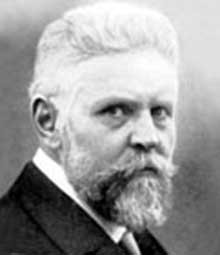 In Deutschland führte der Nationalökonom und Mediziner Alfred Ploetz (1860–1940) im Jahre 1895 den Begriff der „Rassenhygiene“ für die Eugenik ein. Neu war jedoch nur der Begriff, die Prämissen und Inhalte lagen auf Galtons Linie. In seiner Schrift Die Tüchtigkeit unserer Rasse und der Schutz der Schwachen sprach sich Ploetz für ein wissenschaftlich angeleitetes Reproduktionsverhalten der Bevölkerung aus. Über den „Erbwert“ von Nachkommen sollten Ärzte entscheiden. „Rassenhygiene als Wissenschaft ist die Lehre von den Bedingungen der optimalen Erhaltung und Vervollkommnung der menschlichen Rasse“, definierte Ploetz. „Als Praxis ist sie die Gesamtheit der aus dieser Lehre folgenden Maßnahmen, deren Objekt die optimale Erhaltung und Vervollkommnung der Rasse ist, und deren Subjekte sowohl Individuen als auch gesellschaftliche Gebilde einschließlich des Staates sein können.“
In Deutschland führte der Nationalökonom und Mediziner Alfred Ploetz (1860–1940) im Jahre 1895 den Begriff der „Rassenhygiene“ für die Eugenik ein. Neu war jedoch nur der Begriff, die Prämissen und Inhalte lagen auf Galtons Linie. In seiner Schrift Die Tüchtigkeit unserer Rasse und der Schutz der Schwachen sprach sich Ploetz für ein wissenschaftlich angeleitetes Reproduktionsverhalten der Bevölkerung aus. Über den „Erbwert“ von Nachkommen sollten Ärzte entscheiden. „Rassenhygiene als Wissenschaft ist die Lehre von den Bedingungen der optimalen Erhaltung und Vervollkommnung der menschlichen Rasse“, definierte Ploetz. „Als Praxis ist sie die Gesamtheit der aus dieser Lehre folgenden Maßnahmen, deren Objekt die optimale Erhaltung und Vervollkommnung der Rasse ist, und deren Subjekte sowohl Individuen als auch gesellschaftliche Gebilde einschließlich des Staates sein können.“

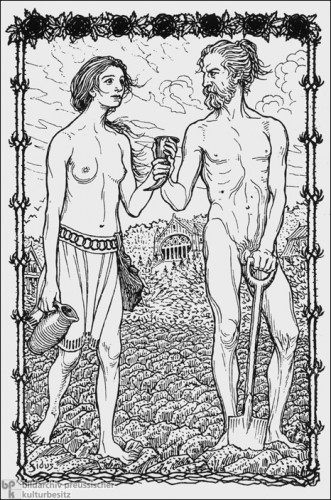 Les revenus générés par cette activité éditoriale demeurèrent assez sporadiques, ce qui obligea les habitants de la Maison Fidus, auxquels s’était jointe la femme écrivain du mouvement de jeunesse, Gertrud Prellwitz, à adopter un mode de vie très spartiate. L’avènement du national-socialisme ne changea pas grand chose à leur situation. Fidus avait certes placé quelque espoir en Adolf Hitler parce que celui-ci était végétarien et abstinent, voulait que les Allemands se penchent à nouveau sur leurs racines éparses, mais cet espoir se mua en amère déception. La politique culturelle nationale-socialiste refusa de reconnaître la pertinence des visions des ermites de Woltersdorf et stigmatisa « les héros solaires éthérés » de Fidus comme une expression de l’ « art dégénéré ». Dans le catalogue de l’exposition sur l’ « art dégénéré » de 1937, on pouvait lire ces lignes : « Tout ce qui apparaît, d’une façon ou d’une autre, comme pathologique, est à éliminer. Une figure de valeur, pleine de santé, même si, racialement, elle n’est pas purement germanique, sert bien mieux notre but que les purs Germains à moitié affamés, hystériques et occultistes de Maître Fidus ou d’autres originaux folcistes ». L’artiste ne recevait plus beaucoup de commandes. Beaucoup de revues du mouvement « Lebensreform » ou du mouvement de jeunesse, pour lesquelles il avait travaillé, cessèrent de paraître. Sa deuxième femme, Elsbeth, fille de l’écrivain Moritz von Egidy, qu’il avait épousée en 1922, entretenait la famille en louant des chambres d’hôte (« site calme à proximité de la forêt, jardin ensoleillé avec fauteuils et bain d’air, Blüthner-Flügel disponibles »). L’ « original folciste » a dû attendre sa 75ème année, en 1943, pour obtenir le titre de professeur honoris causa et pour recevoir une pension chiche, accordée parce qu’on avait finalement eu pitié de lui.
Les revenus générés par cette activité éditoriale demeurèrent assez sporadiques, ce qui obligea les habitants de la Maison Fidus, auxquels s’était jointe la femme écrivain du mouvement de jeunesse, Gertrud Prellwitz, à adopter un mode de vie très spartiate. L’avènement du national-socialisme ne changea pas grand chose à leur situation. Fidus avait certes placé quelque espoir en Adolf Hitler parce que celui-ci était végétarien et abstinent, voulait que les Allemands se penchent à nouveau sur leurs racines éparses, mais cet espoir se mua en amère déception. La politique culturelle nationale-socialiste refusa de reconnaître la pertinence des visions des ermites de Woltersdorf et stigmatisa « les héros solaires éthérés » de Fidus comme une expression de l’ « art dégénéré ». Dans le catalogue de l’exposition sur l’ « art dégénéré » de 1937, on pouvait lire ces lignes : « Tout ce qui apparaît, d’une façon ou d’une autre, comme pathologique, est à éliminer. Une figure de valeur, pleine de santé, même si, racialement, elle n’est pas purement germanique, sert bien mieux notre but que les purs Germains à moitié affamés, hystériques et occultistes de Maître Fidus ou d’autres originaux folcistes ». L’artiste ne recevait plus beaucoup de commandes. Beaucoup de revues du mouvement « Lebensreform » ou du mouvement de jeunesse, pour lesquelles il avait travaillé, cessèrent de paraître. Sa deuxième femme, Elsbeth, fille de l’écrivain Moritz von Egidy, qu’il avait épousée en 1922, entretenait la famille en louant des chambres d’hôte (« site calme à proximité de la forêt, jardin ensoleillé avec fauteuils et bain d’air, Blüthner-Flügel disponibles »). L’ « original folciste » a dû attendre sa 75ème année, en 1943, pour obtenir le titre de professeur honoris causa et pour recevoir une pension chiche, accordée parce qu’on avait finalement eu pitié de lui. 


